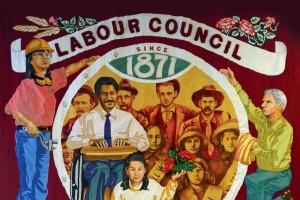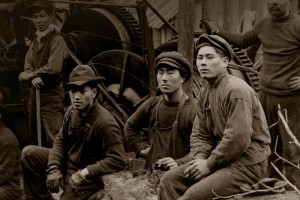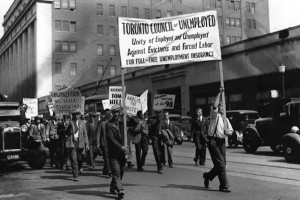International labour standards and the International Labour Organization (ILO): what do they mean to me? This is something I hear all the time, whether from local activists or seasoned staffers. I get a general lack of interest, sometimes scepticism, and even a bit of disdain when the conversation turns towards the ILO.
Canadian unionists, it seems, if they think of the ILO at all, think of well-paid bureaucrats in Geneva or a bureaucratic dinosaur. Either way, the organization is usually cast as too far removed from the day-to-day reality of the Canadian workplace or mostly irrelevant to daily trade union matters. So why is the ILO so important? And why does it matter to Canadian workers and their
unions?
Let's start with the basics. The ILO is a specialized agency of the United Nations. It sets international labour standards through tripartite consensus, meaning that governments, unions and employer organizations are all involved in their development. These standards come in the form of international conventions (legally binding treaties) and recommendations (non-binding guidelines). If and when they are ratified by member countries, those countries commit themselves to applying the provisions, which includes writing them into national law. In this way, ILO conventions are the basis for labour legislation in many countries in the world.
To date, Canada has ratified only 28 conventions out of a total of 188, and signed on to only five of the eight fundamental conventions covering forced and child labour, non-discrimination, freedom of association and the right to collective bargaining. According to Human Resources and Social Development Canada, however, the country has played an active and constructive role in the ILO since its foundation in 1919.
The ILO also plays an important role in supervising these standards. It has a series of tripartite committees that act as a global watchdog on labour affairs, the most important of which is the Committee on Freedom of Association. This committee, established in 1951, examines complaints raised against member states concerning violations of workers' rights to form or join trade unions. Through this committee, national unions and employer organizations, alongside their global counterparts, raise grievances about laws or government actions that contravene ILO conventions. The committee and its rulings are a key element in global social policy and the global governance of labour standards.
So, what does this mean for Canadian unions? According to the ILO, the Committee on Freedom of Association has received over 90 cases against Canada since 1958. Of the many complaints raised against the country, the vast majority (over 90 per cent in the last two-and-a-half decades) have had rulings that confirm the violation of freedom of association. To add insult to injury, according to Derek Fudge of the National Union of Public and General Employees (NUPGE), Canadian federal and provincial governments have shown "complete disregard" towards the rulings of the ILO. Its requests for information have sometimes been met with much-delayed response, while others have received inaccurate or disputed information.
Of the three cases currently before the committee, two concern the right of workers to engage in collective bargaining, while a third concerns legislation that deprives B.C. teachers of the lawful means to promote and defend their occupational interests. These rights are enshrined in ILO conventions and considered fundamental by the international community. As a founding member of the ILO and having ratified the UN's Covenant on Economic, Social and Cultural Rights, Canada has an obligation to protect and advance them. In fact, Canada's international obligations were considered a partial basis for a recent Supreme Court ruling on the longstanding case between B.C. health care unions and the B.C. government. This ruling overturned previous decisions by the high Court to state that collective bargaining is a constitutional right supported by the Canadian Charter of Rights and Freedoms. In support of the ruling, the Court said: "The Charter should be presumed to provide at least as great a level of protection as is found in the international human rights documents that Canada has ratified."
This affirms that labour rights such as the right to collective bargaining are fundamental human rights, and points to the ongoing relevance of the ILO and international standards. It also reveals the strategic importance of the Charter of Rights and Freedoms as an instrument for advancing workers' rights in Canada.
Let's play a game and pretend that the ILO doesn't exist. If this were the case, there would be no truly global body charged with overseeing international labour standards and working conditions worldwide. Would such standards even exist? This situation would leave the governance of workers' rights at the international level to a hodgepodge of UN and other international agencies. In fact, organizations like the World Bank and World Trade Organization would probably be jockeying for position on labour matters, as in some cases they already are. And this, needless to say, would have a disastrous effect on workers' rights everywhere, not only in Canada. While the ILO establishes international labour standards from a rights-based perspective and works alongside the global labour movement to protect and advance workers' interests, organizations like the World Bank and WTO approach labour standards with the interests of global business and trade facilitation in mind. If the ILO didn't exist, it would have to be created (albeit in a new and modern form), not least as a counterweight to the growing power of these
organizations.
The ILO is not everything it could be, and there's good reason for unionists to think of it as a bureaucratic dinosaur. It moves slowly on almost everything it touches and tends to blunt the cutting edge of criticism through compromise and social dialogue. Yet this is no reason to dismiss it altogether or to consider it unimportant to Canadian workers. On the contrary! A stronger and better ILO could do more to advance workers' rights, particularly if it had better supervisory powers and a more effective regulatory system.
The ILO is only as strong as its constituents, and its current weakness, in some respects, reflects a balance of power that weighs heavily against organized labour. We are living in neo-liberal times. The labour movement has suffered attacks from organized capital and conservative politicians for three decades; and the ILO has not escaped these attacks. Strong national and international unions are needed to make the ILO stronger; and a stronger ILO will only strengthen the position of organized labour everywhere.
THE ILO AND YOU
Promoting Workers’ Rights in the Global Economy
Philip Hunter is an independent researcher currently working for the Multinational Enterprises Programme of the ILO. He lives in Switzerland.














